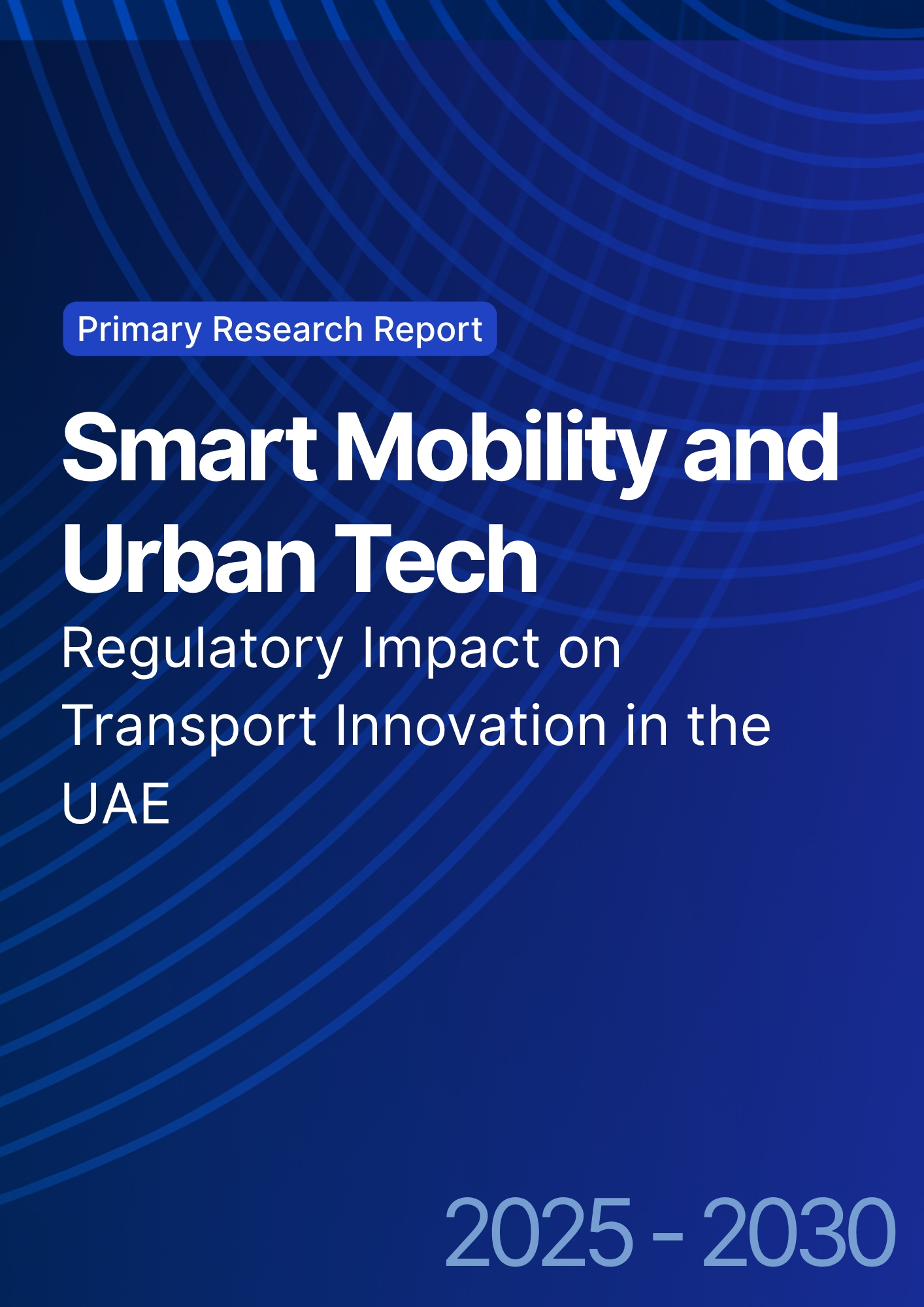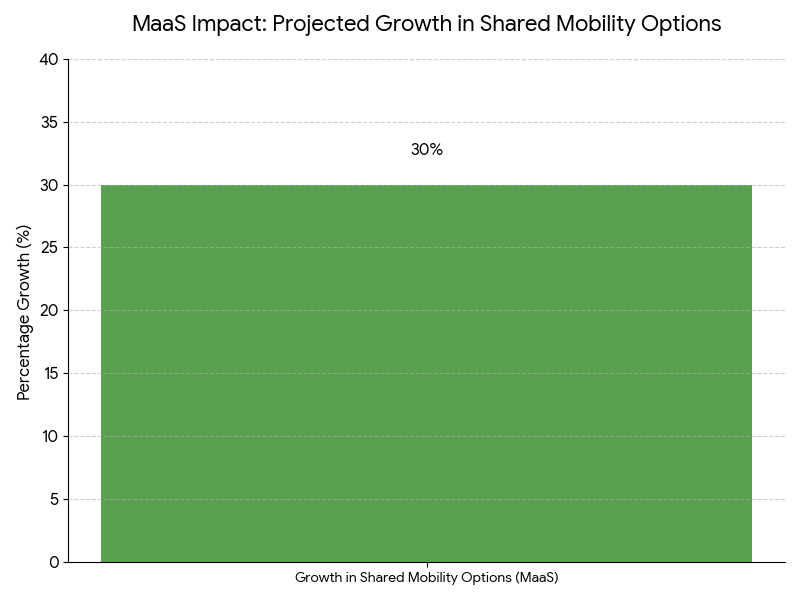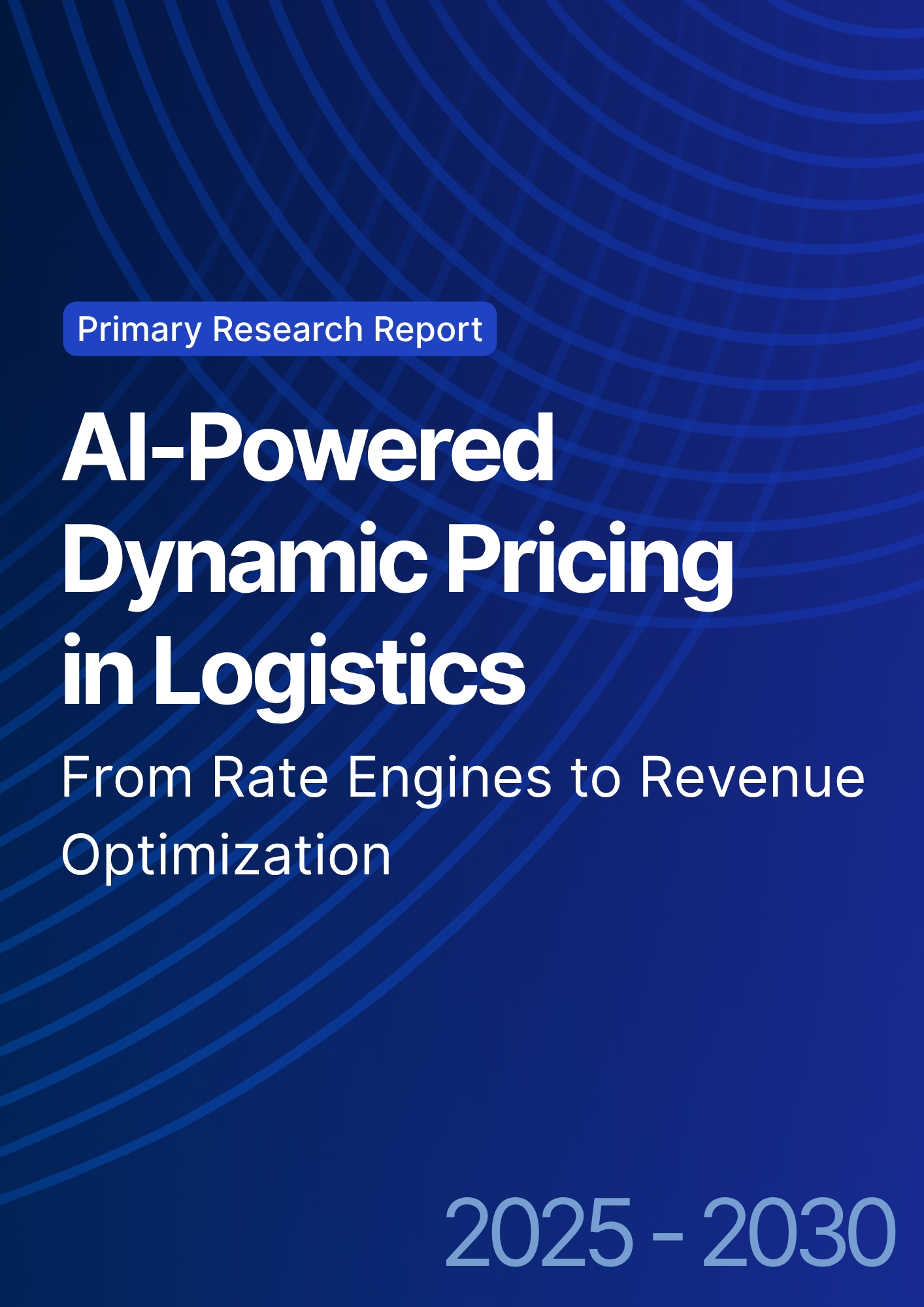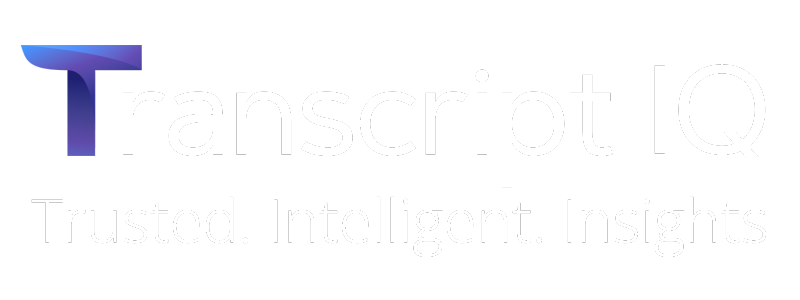

68 Circular Road, #02-01 049422, Singapore
Revenue Tower, Scbd, Jakarta 12190, Indonesia
4th Floor, Pinnacle Business Park, Andheri East, Mumbai, 400093
Cinnabar Hills, Embassy Golf Links Business Park, Bengaluru, Karnataka 560071
Connect With Us
Smart Mobility and Urban Tech: Regulatory Impact on Transport Innovation in the UAE
The smart mobility and urban tech market in the UAE is projected to grow from $3.7B in 2025 to $10.6B by 2030 (CAGR 23.2%), fueled by AI-powered transport systems, electric vehicle adoption, and autonomous mobility solutions. The UAE government’s regulatory frameworks, such as Dubai’s Autonomous Transportation Strategy and UAE Vision 2030, are accelerating innovation. By 2030, 50% of public transport in Dubai will be autonomous, with electric vehicles making up 60% of new vehicle sales. Regulatory policies supporting urban mobility solutions will foster smart city developments and enhance sustainability across the region.

What's Covered?
Report Summary
Key Takeaways
- Market size: $3.7B → $10.6B (CAGR 23.2%).
- 50% of Dubai’s public transport to be autonomous by 2030.
- 60% of new vehicles in the UAE to be electric by 2030.
- $4B investment in autonomous transport infrastructure by 2030.
- Smart city projects to integrate AI-powered mobility systems across UAE.
- AI-based traffic management will reduce congestion by 25% by 2030.
- Public-private partnerships drive $2.5B investment in urban tech.
- Mobility-as-a-Service (MaaS) adoption in UAE cities expected to increase by 30%.
- Electric vehicle charging infrastructure investment exceeds $1.5B by 2030.
- Regulatory policies will drive 30% growth in smart mobility services.
Key Metrics
Market Size & Share
The smart mobility and urban tech market in the UAE is expected to grow from $3.7B in 2025 to $10.6B by 2030, driven by regulatory policies, AI integration, and electric vehicle adoption. By 2030, 50% of public transport in Dubai will be autonomous, with the UAE Vision 2030 driving investments in digital infrastructure, sustainable mobility, and clean energy technologies. Electric vehicles will represent 60% of new vehicle sales, supported by government incentives and charging infrastructure investments, which are expected to exceed $1.5B. In addition, Mobility-as-a-Service (MaaS) will grow by 30%, transforming the way people access and pay for transport services. The UAE government’s investment in autonomous transport infrastructure will reach $4B by 2030, enabling smart city developments and enhancing urban mobility.
Market Analysis
The growth of smart mobility in the UAE is supported by several key factors, including the UAE Vision 2030, which focuses on sustainable urban transport systems, electric vehicle adoption, and autonomous vehicle integration. AI-powered traffic management systems will reduce congestion by 25% and optimize traffic flow, allowing for better utilization of public transportation. Dubai’s public transport system is undergoing a major transformation, with 50% of vehicles set to be autonomous by 2030, contributing to environmental sustainability and enhanced mobility. Additionally, the introduction of Mobility-as-a-Service (MaaS) will increase user access to on-demand transport, fostering a 30% rise in ride-sharing services. The development of charging infrastructure for electric vehicles will enable the transition to cleaner transport, supported by $1.5B in investments. The combination of government regulation and technological advancements will facilitate the transition to smart, sustainable urban mobility.

Trends & Insights
- AI Traffic Management: 25% reduction in urban congestion and faster transit times.
- Autonomous Transport Adoption: 50% of Dubai’s public transport will be autonomous by 2030.
- Electric Vehicles: 60% of new vehicle sales in the UAE will be electric by 2030.
- MaaS Growth: 30% increase in Mobility-as-a-Service adoption by 2030.
- Government Investment: $4B allocated for autonomous transport infrastructure.
- Private Sector Involvement: Over $7B in green mobility and smart city technologies.
- Charging Infrastructure Expansion: $1.5B in investment for electric vehicle charging stations.
- Sustainability Impact: 25% reduction in carbon emissions due to electric transport.
- AI in Transportation: Real-time traffic optimization increases operational efficiency.
- Smart City Integration: UAE Vision 2030 drives sustainable urban mobility.
These trends showcase UAE’s efforts to lead global smart city and mobility innovations, balancing efficiency, sustainability, and advanced technologies.
Segment Analysis
The smart mobility market in the UAE is segmented into autonomous vehicles (40%), electric vehicles (30%), Mobility-as-a-Service (MaaS) (20%), and smart city infrastructure (10%). Autonomous vehicles dominate the market, with the UAE investing heavily in autonomous transport systems. The electric vehicle market is growing rapidly, projected to represent 60% of new vehicle sales by 2030. MaaS adoption will account for 30% growth in urban transport options, integrating ride-sharing, carpooling, and micro-mobility services. Smart city infrastructure is being built to support the digitization of transport services, including smart parking, vehicle tracking, and AI-powered traffic systems. By 2030, half of Dubai’s transport fleet will be autonomous, further driving the growth of sustainable urban mobility solutions in the UAE.

Geography Analysis
The UAE is at the forefront of smart mobility innovation in the Middle East, with Dubai and Abu Dhabi leading the way in the development of autonomous and electric vehicles. Saudi Arabia and Qatar are also making significant strides in transport digitization, focusing on AI-powered traffic systems and electric vehicle integration. The UAE Vision 2030 is a key catalyst for this growth, with $4B in investments for autonomous infrastructure and smart city projects. By 2030, the Middle East and UAE will lead the global transition to sustainable, AI-powered urban mobility, with 30% of all transport services in UAE cities operating under autonomous and electric systems.
Competitive Landscape
Key players include Tesla, Waymo, Siemens Mobility, and General Electric, dominating the autonomous vehicle and smart transport infrastructure sectors. Tesla leads the electric vehicle market, while Waymo is spearheading autonomous vehicle technology. Siemens Mobility and GE are focused on AI-powered transportation solutions and smart traffic systems, transforming urban transport networks across the UAE. Private companies such as Careem and Uber are also heavily invested in MaaS solutions, contributing to the 30% growth in shared mobility options. Partnerships with international tech giants will enhance the UAE's capabilities in smart city mobility as they work toward implementing sustainable, AI-driven transport solutions for urban areas.

Report Details
Proceed To Buy
Want a More Customized Experience?
- Request a Customized Transcript: Submit your own questions or specify changes. We’ll conduct a new call with the industry expert, covering both the original and your additional questions. You’ll receive an updated report for a small fee over the standard price.
- Request a Direct Call with the Expert: If you prefer a live conversation, we can facilitate a call between you and the expert. After the call, you’ll get the full recording, a verbatim transcript, and continued platform access to query the content and more.


68 Circular Road, #02-01 049422, Singapore
Revenue Tower, Scbd, Jakarta 12190, Indonesia
4th Floor, Pinnacle Business Park, Andheri East, Mumbai, 400093
Cinnabar Hills, Embassy Golf Links Business Park, Bengaluru, Karnataka 560071
Request Custom Transcript
Related Transcripts
$ 1350


68 Circular Road, #02-01 049422, Singapore
Revenue Tower, Scbd, Jakarta 12190, Indonesia
4th Floor, Pinnacle Business Park, Andheri East, Mumbai, 400093
Cinnabar Hills, Embassy Golf Links Business Park, Bengaluru, Karnataka 560071













